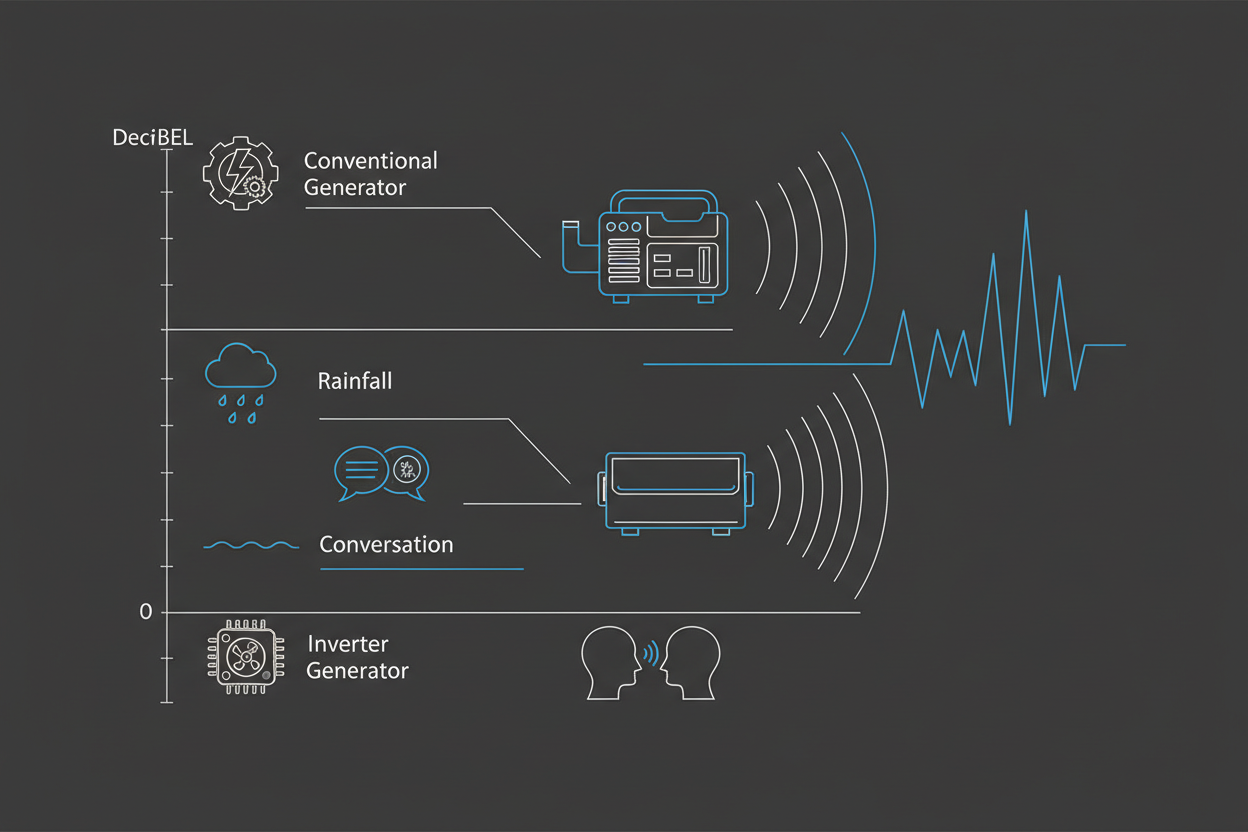Why Inverter Generators Are Quieter for Home Backup Use
Noise levels matter during home outages, especially at night or in close neighborhoods. Inverter generators provide quieter backup power thanks to advanced engine and exhaust design.
Lower sound output improves comfort and avoids disturbing neighbors during multi-hour or overnight outages.

Understanding Decibel Levels
Decibels measure sound intensity on a logarithmic scale. A small increase on the scale represents a significant rise in actual noise.
Inverter generators typically operate between fifty and sixty five decibels at standard loads. This range resembles normal conversation or light rainfall.
- Normal conversation: ~60 dB
- Inverter generator: 52–65 dB
- Conventional generator: 70–90 dB
Why Inverter Technology Reduces Noise
Inverter systems allow engines to run at variable speeds. Lower RPM during light loads significantly reduces overall sound.
Improved mufflers and optimized enclosures also minimize mechanical noise. These features help generate quieter power for home environments.
- Variable RPM for light loads
- Advanced exhaust systems
- Engine vibration reduction
Real-World Noise Benefits
Quiet operation is essential at night when homes rely on refrigeration and communication devices. Reduced noise helps families rest comfortably during extended outages.
Lower sound output also supports community guidelines in residential neighborhoods. Many areas restrict nighttime noise levels for safety and comfort.
- Better sleep during blackout nights
- Less disturbance for nearby homes
- Compliance with residential noise limits
Placement and Setup Tips
Proper placement further minimizes generator noise. Locating units on level ground away from windows lowers perceived volume.
Rubber pads reduce vibration, which decreases structural sound transfer. Small adjustments can noticeably improve overall comfort.
- Place the generator on stable outdoor surfaces
- Aim the exhaust away from occupied rooms
- Use vibration-damping pads when possible
Conclusion
Inverter generators offer quieter operation for home backup power. Advanced engine control and improved acoustics make them ideal for residential outage conditions.
